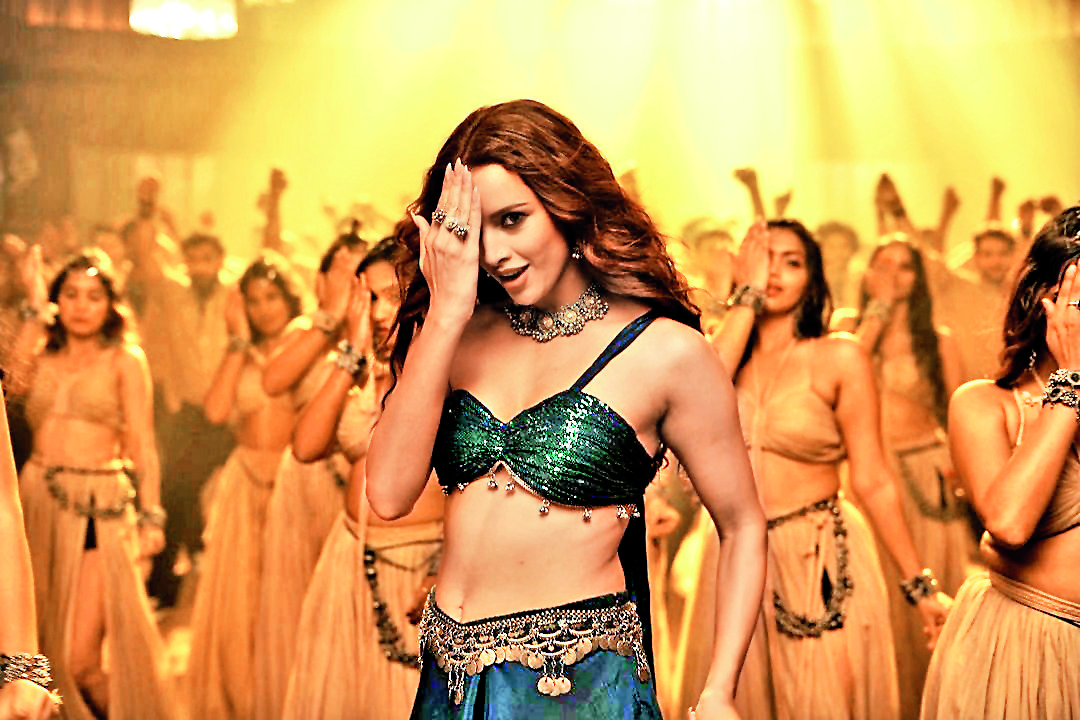Triptii’s dance falls flat

The actress is being criticised for her latest song Mere Mehboob. Why blame the actress, it’s the choreographer who comes up with vulgar, suggestive moves. Big stars too have followed what was told
Triptii Dimri has quickly risen to the status of a national crush, becoming a sensation on social media. Currently, she is in the midst of a whirlwind promotional tour for her upcoming rom-com Vicky Aur Vidya Ka Woh Wala Video. However, her latest song from the film, Mere Mehboob, has not been well received.
The dance number, which draws comparisons to Tamannaah Bhatia’s viral hit Aaj Ki Raat from Stree 2, failed to evoke the same positive reaction. While Triptii makes a sincere attempt to sway seductively to the vocals of Shilpa Rao, the choreography by Ganesh Acharya is being widely criticised as unflattering. Many viewers have expressed discomfort with the overly suggestive moves.
Social media has been abuzz with criticism. “This is embarrassing for Tripti. So cringe,” remarked one user on X. Another noted that while Tripti may not be an exceptional dancer, the choreographer should bear responsibility for the misstep.
In response to the backlash, Triptii addressed the controversy, denying that the dance was intended to be raunchy. She explained, “It was my first dance number, and I didn’t anticipate this kind of reaction. Some things resonate with audiences, and others don’t. That doesn’t mean you stop experimenting.”
An industry insider suggests that while A-list stars have the clout to refuse such numbers or tweak them to suit their image, this privilege isn’t extended to everyone. “For some actors, these dance numbers are a rite of passage — a way to grab attention and stand out. With the success of stars like Samantha Ruth Prabhu and Tamannaah in the ‘item song’ league, some actresses believe it could be their ticket to going viral.”
Items numbers are risque
Dance numbers, which were once the domain of “vamps” in the 1960s and ’70s, have since become a platform for leading ladies. Choreographers like Saroj Khan were instrumental in shaping these performances, as seen with Madhuri Dixit, whose iconic dances in songs like Choli Ke Peeche (Khalnayak) and Dhak Dhak Karne Laga (Beta) drew criticisms over their suggestive nature.
Items numbers are risque
Dance numbers, which were once the domain of “vamps” in the 1960s and ’70s, have since become a platform for leading ladies. Choreographers like Saroj Khan were instrumental in shaping these performances, as seen with Madhuri Dixit, whose iconic dances in songs like Choli Ke Peeche (Khalnayak) and Dhak Dhak Karne Laga (Beta) drew criticisms over their suggestive nature.
By the 2000s, the “item song” genre — marked by risque lyrics and provocative choreography — had fully taken hold. Bipasha Basu in Omkara, Kareena Kapoor in Brothers, Katrina Kaif in Agneepath, and Deepika Padukone in Dum Maro Dum became synonymous with these viral dance numbers. While these songs often boosted a film’s popularity, they also drew sharp criticism for objectifying women and promoting misogynistic lyrics.
Recently, Ananya Panday addressed the issue, stating: “As an artist, it’s my responsibility to portray myself in a way that feels empowering. If I were to do an item number, it would have to reflect that. The girl in the song should be in control, not overtly sexualised, and definitely respected. I wouldn’t participate if she’s objectified in any way.”
( Source : Deccan Chronicle )
Next Story

